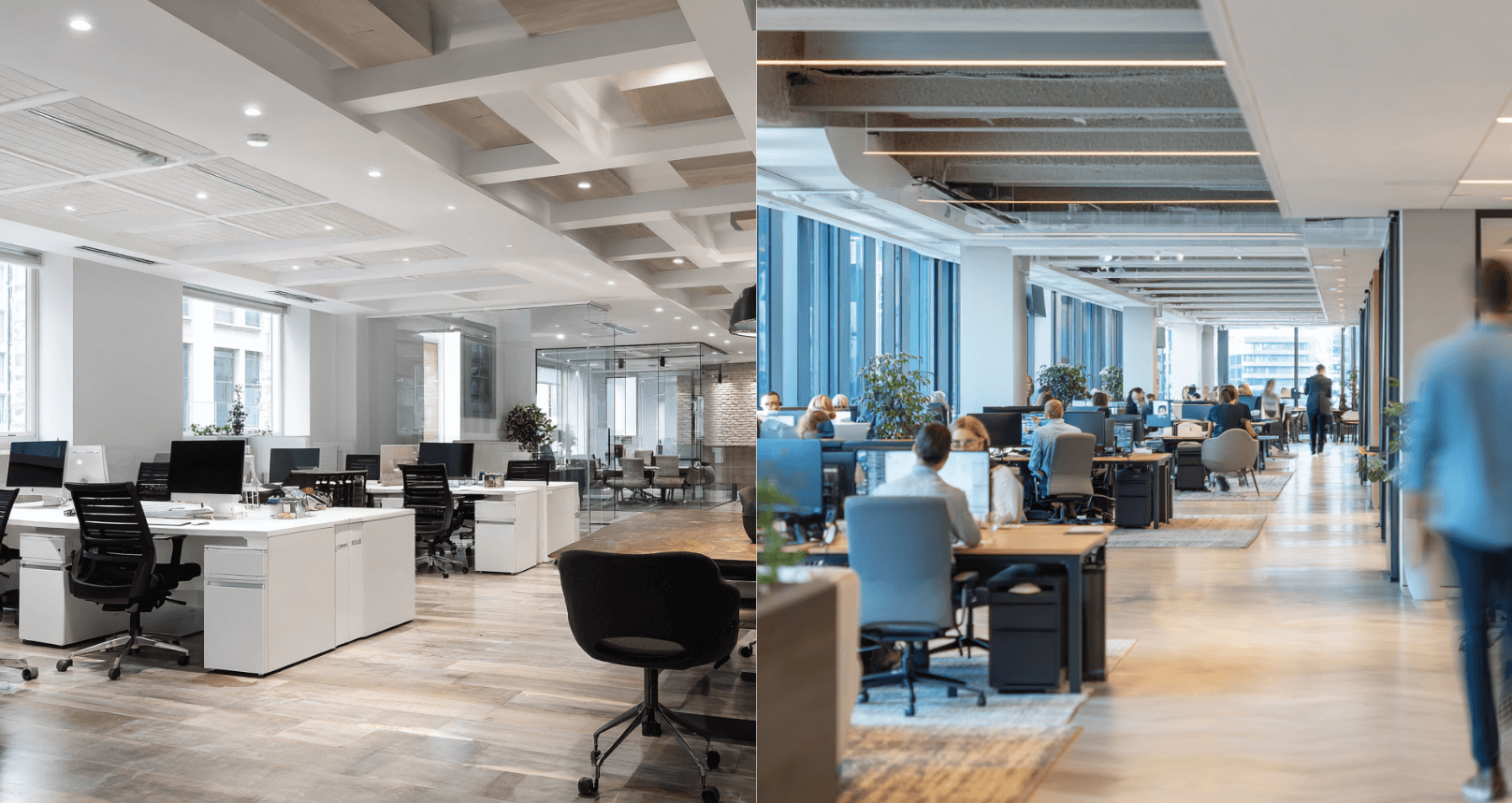The importance of in-office experiences with Zendesk's Danielle Newton
We spoke to Danielle Newton of Zendesk on how the pandemic has changed the company's view on remote work.

Danielle Newton, Director of Workplace Experience at Zendesk, manages over 500,000 square feet of office real estate that serves 4,000 employees around the globe.
We discussed how the pandemic has changed the company's view on remote work and the importance of in-office experiences for a positive work culture. Watch the full discussion above.
Pandemic impact on Zendesk's work model and real estate footprint
The pandemic radically changed the way Zendesk's offices function. Danielle estimates that 4% of staff worked remotely pre-pandemic, and now about 40% of the team is remote.
She says, "Our culture was very in-office … There was very much a feeling amongst leadership that we need to be in the office. We need to see our people. But [the pandemic] has totally changed that. We're not going to go back to working in the same way that we were before."
Many companies with a strong in-office ethos like Zendesk's were surprised to realize that remote work didn't diminish productivity.
Danielle expects this new understanding and acceptance of remote work to change their real estate footprint in the future.
She says the change to a hybrid work model "may manifest itself more in growing our real estate footprint less rapidly than we had been in the past, rather than shedding any of our current footprint."
The transition to unassigned seating
In addition to embracing the option to work remotely, Zendesk is also switching from 1:1 seating to unassigned seating. They tested this out before the pandemic, using a 1:1.3 ratio, but like many others, experienced change management issues.
Danielle believes the pandemic has accelerated the trend of going 100% unassigned. She explains, "I was getting a lot of pushback. Then, we all go home, and suddenly it's like, 'Oh, nobody actually needs their own desk at all.' [Post-pandemic], we're going to go back into a fully unassigned model."
To ensure the transition is more palatable this time around, Danielle's team is evaluating different software platforms to find the best way to support everyone with the new model. Whether they're sitting in the office, using an all-access WeWork pass, or working from home, she wants every employee to feel comfortable.
"We want to keep flexibility and choice front and center of everything that we do. We want people to ... be able to get their work done in the way that is the most conducive for that individual," she says.
The new unassigned seating model will create versatile work options, enhance collaboration opportunities, and support a stronger work culture.
In-office experiences build culture
When looking at the bottom line, Danielle says it's easy to think, "Do we really need offices at all?" But it comes down to culture. She explains, "Zendesk is very much a social impact organization. We care very much about the neighborhoods that we're a part of. And we're very people focused. The office is really central to all that."
With Zendesk's 500,000 square feet of real estate, she plans to create in-office neighborhoods for each team as well as communal areas. It's all about bringing workers together. People need spaces where they can have those serendipitous conversations that lead to brilliant new ideas.
Her goal is to create a flexible office environment that encourages people to get their work done in the way that's best for them while still maintaining Zendesk's people-focused culture.
The future of work is social
A year of social distancing and isolation has left people craving collaboration and impromptu interactions with their fellow humans. Scheduled Zoom calls can be productive, but they don't really fulfill our basic need for socialization and a sense of connection.
"We are missing that," she says, "Both from a personal standpoint and a professional standpoint. I think people will want to come into the office."
Danielle sees the future of work as being less about in-office desking and more about building culture, social connections, and collaboration. She says, "The idea of being so concerned about desks and desk numbers is becoming less important, and we need to focus now on the collaborative spaces, what tools do we need, what technology do we need."
Key Takeaways

DisruptCRE founder shares how corporate real estate is changing
Companies are moving employees from underutilized offices into "space as a service” options with utilization data.
Watch now
Half of offices are empty but you still can’t find a meeting room
Employees waste up to 30 minutes a day looking for a meeting room to meet in workplaces.
Read moreMost recent

Space waste: The industry’s naughty and nice list
Our sensors spilled the beans: What industry is winning, who's wasting and who's hogging your office real estate.
.png)
Improve your occupancy sensor RFP with our best practice guide
Discover essential questions to simplify your occupancy sensor RFP process and confidently choose the right vendor.

Does RTO actually work? A webinar debate with the data
Density’s RTO data sparks debate between a pro-office CEO and a remote-friendly workplace strategist.

A workplace love story: Phone booth meets sensor
Phone booths are booming—and occupancy sensors help companies manage and measure them with ease.
Explore other Density Products
Atlas for Workplace
Insights for the workplace that help you cut costs and deliver better spaces.
Learn more